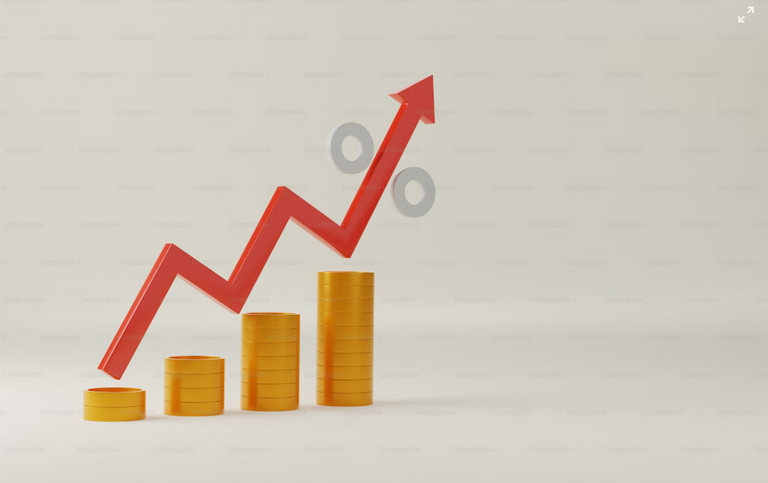Today's world is moving towards a digital and global economy, where every country's economic policy and economic strategy are not just limited to its own limits but have an impact on the whole world. Economics is not just a book of calculations of money but it affects every aspect of human life, be it wealth, health or technology. Every city's decision, like buying a house, earning money or getting a job, is based on the basic principles of economics. For rising countries like Pakistan, the role of economics is even more important as people there are looking for economic improvement and stability for employment, peace and health. Despite facing devastation from war and bad policies, these countries are now trying to combat the threat of sustainable development goals (SDGs) and climate change. In today's world technology and globalization have introduced new ways of trade and finance, like cryptocurrency and blockchain. These new tools are having an impact on the daily matters of every person. A slight impact can shift the entire economy at one place, and this phenomenon is enough to understand the interconnected and dynamic nature of economics. Through education and research, new ideas and models are being developed that reduce the gap between urban and rural areas and promote equal opportunities. The role of Pakistan also emerges in this context, where the power of youth can be used through smart policies to increase GDP and national income. Implementing the concepts of renewable energy and green economy will be essential for every country in the coming times and this will become the meaning of their survival and success. If we aim for global partnerships and cooperation, then it is important to understand models like south-south cooperation that provide mutual benefits to developing countries. Not only this, it is becoming essential for every country to understand and adopt mediums like trade agreements and digital finance because these are the bridges which create and run economies. It is the responsibility of every person in this world to understand his economy and be aware of the significance of his actions, because he is a global citizen who is part of an interconnected system.
Another important aspect of economics in today's developing world is income inequality, which is seen not only between countries but also within a country. Globalization and free trade have given the benefit of economic growth to many countries, but along with it the gap of poverty and wealth has started increasing. In developing countries like Pakistan, where a large part of the population still lives in rural areas, inequality is more common due to urbanization and industrialization. The solution to this issue lies in inclusive growth, in which every class gets an equal share of economic development. Promoting infrastructure development, skill training, and entrepreneurship can help break the poverty line. Also, it is important to focus on women empowerment and gender equality, as women's participation can lead to improvements in every sector of the economy.
In the era of technology and digitalization, it is important to understand and implement new aspects of economics. New tools such as artificial intelligence, big data, and machine learning are proving to be revolutionary not just for businesses but also for the decision-making processes of governments. E-commerce platforms have broken the divide between local and global markets, and people are generating better incomes from their homes. But, along with this it is also important to understand the issue of digital divide, which leaves behind those classes who cannot access technology. For countries like Pakistan, promoting digital infrastructure and affordable internet access is the need of the hour. Shifting from agrarian economy to a knowledge-based economy, and bringing reforms in the education system for this shift, is essential for the material progress of the country.
Environment and sustainability are also important pillars of economics in a developing world. The threat of climate change has shaken the global economies, and now it is the time for renewable energy, carbon offsetting and green technologies. Developing countries like Pakistan, which are most affected by climate change, need to make their economic policies environment-friendly. For example, water conservation and food security can be ensured by making agricultural practices sustainable. At the same time, industries should be incentivized so that they cause less harm to the environment and adopt green products. This approach can be implemented not only at the country level but also through global partnerships where developing and developed countries cooperate with each other.
Ultimately, economics can become not just a means of competition between countries but also a tool to promote collaboration and peace. The role of international organizations like the IMF and the World Bank is important in a declining world, but their work must be to promote equity and justice, not just financial gains. Countries like Pakistan should be given the opportunity to improve their economies through debt relief and development aid. At the same time, empowering local governments and the public by making policies at the grassroots level, and making them a part of economic decision-making, can be an example for the country. The role of every person is not just that of a citizen, but of an active participant, who takes responsibility to improve the material future of his or her country and the world. The role of economics in this evolving world is to improve human lives and find solutions to global challenges, which is not limited to just financial policies and numbers but is a human and social responsibility.

source
The role of global trade and financial systems has gained even more importance in the expanding world. Multinational corporations and global supply chains have given economies the ability to relate to each other such that the impact of a financial crisis in one country spreads rapidly to other countries. An example of this is the global financial crisis of 2008, in which both developing and developed economies suffered losses. But amid these challenges, there are opportunities too. Projects like regional trade agreements such as the China-Pakistan Economic Corridor (CPEC) and the South Asian Free Trade Agreement (SAFTA) open new avenues that increase the opportunities for economic growth and employment. It is important for Pakistan to take advantage of these opportunities, but at the same time also develop its local industries and resources, so that its economy can be made sustainable and self-reliant.
Financial inclusion and fintech are the tools of the booming world that are becoming game changers for economic growth. Platforms like mobile banking and digital wallets have brought financial services to people who were previously cut off from traditional banking systems. In Pakistan, initiatives like EasyPaisa and JazzCash have opened up the way for economic empowerment for rural areas and low-income groups. But this also requires effective regulation and cyber security measures, so that people's trust can be maintained. The role of microfinance institutions and small business loans is also proving to be helpful in promoting small and medium-sized businesses. This not only impacts the GDP but also addresses issues of poverty reduction and unemployment.
Education and innovation are the backbones of the growing world’s economies. In this era of knowledge economy, countries that focus on the education and skill development of their youth move ahead. It is important for Pakistan to allocate more resources to STEM (Science, Technology, Engineering, and Mathematics) education and promote research and development (R&D). By developing partnerships between universities and industries, new ideas and technologies find practical applications, which prove productive for the economy. At the same time, it is important to foster startups and an entrepreneurship culture, so that new business models and innovations create diversity and growth in the economy. The government should design policies that support new businesses through tax incentives and funding opportunities.
Ultimately, economic resilience is a fundamental aspect of stability in a growing world. Every country has the responsibility to be prepared for challenges such as natural disasters, pandemics, and political instabilities. Pakistan needs to diversify its economy so that it is not limited to just agriculture or textile industries. The economy can be made more resilient and adaptable by promoting sectors such as the services sector, IT exports, and tourism. At the same time, it is important to develop social safety nets and welfare programs that can provide financial protection to people during economic shocks. In today's world, those countries are successful that focus not just on short-term goals but on long-term sustainability and inclusivity. The role of economists is not just of financial policies but of building a strong and sustainable economy that takes human lives towards improvement and equality.


This photograph touched my heart. I love this kind of photography, it's so fascinating.